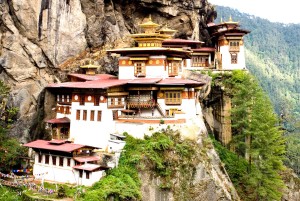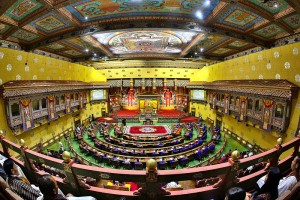LOCAL GOVERNMENT STICKS TO IT’S DECISION TO CLOSE TAKTSHANG EVERY TUESDAY
Taktshang to remain closed every Tuesdays
Officials of Paro Dzongkhag Tshogdu (DT) reiterated that the closure timing for Taktshang Monastery should be implemented as endorsed during the eighth session of DT.
The tshogdu on December 30 wrote to the Taktshang Lam, Tourism Council of Bhutan (TCB) and the Dzongkhag Administration asking them to implement the closure timing from January 1, 2016 as decided during the DT.
The eighth session of the DT last September decided to close Taktshang for visitors on Tuesdays except during auspicious days.
The Dzongkhag Administration submitted the proposal saying that cleaning, repair and renovation works will be done on the days when the Monastery remains closed. The decision was to be implemented after informing TCB and other stakeholders. However, during a meeting between TCB, the Dzongkhag Administration of Paro, and Association of Bhutanese Tour Operators (ABTO) on December 23, it was agreed that the proposed timing would be deferred for three months.
ABTO and TCB have been asked to come up with a “workable solution”, failing which, the proposed closure as endorsed by the DT will be implemented.
DT officials said that no one has the right to nullify DT’s resolution. For any change in decision, the right procedure is that it has to be routed through the DT, said DT Chairman Phub Tshering.
“We stand by our decision and the closure timing should be implemented,” Phub Tshering said.
ABTO and TCB officials were not available for comment. Tour operators expressed concerns over the tussle between the DT and the various agencies. They say that they have already sold tour packages for this year, which could cause serious problem with their clients.
“TCB should have the authority to decide on important tourism-related matters,” said a tour operator. Another tour operator said that while the dzongkhag is responsible for addressing issues pertaining to Taktshang, the way the decision is being taken without proper consultation is wrong.
“Taktshang is an important tourist site,” he added. “It should remain open on all days as it would have a huge impact on tourism industry.”
Taktshang gets more than 1,000 pilgrims a day, including tourists. Due to rise in the number of visitors, keeping the trail clean has become an issue.
SOURCE: KUENSEL (Kinga Dema)


